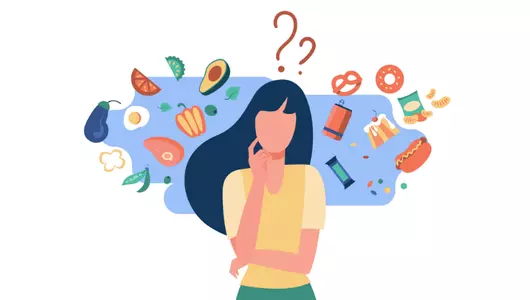By Kaitlyn Risen, Dietetic Intern, Gundersen Nutrition Therapy
It is recommended that you fill one half of your plate with fruits and vegetables at meal time. But when choosing between fresh, frozen and canned fruits and vegetables, does it really make a difference which type you choose?
The truth is that all three types are similar in nutrient content, so the more important part is getting adequate amounts in your diet. There are certainly benefits and pitfalls to each, especially considering budget, lifestyle, taste preference, cooking style and more. How do you decide which type makes the most sense for you and your family?
Fresh produce
Fresh fruits and vegetables make perfect "to-go" foods for snacks and meals. Not only are they easy grab-and-go foods, but they also contain fiber to help you stay full longer. Purchase fresh produce that is in season. It is often less expensive when purchased in season, and it will usually taste better and be more nutrient-dense. Create a meal plan for purchasing and preparing fresh fruits and vegetables. If you don't eat them quickly, they start to rot and you will have to discard them as the nutritional content deteriorates overtime.
Canned produce
Canned fruits and vegetables are a great option to keep on hand because you can easily store them in your pantry and they do not go bad quickly. You can purchase canned fruits and vegetables for a very reasonable price. However, canned food can also contain certain additives. For example, sodium is often added to canned vegetables to prolong the shelf life. This can be avoided by choosing low-sodium canned vegetables or rinsing canned vegetables before serving or preparing them. Some canned fruits can also contain added sugar, so choose items that are canned in water or their own juice. It is important to be aware that some fruits and vegetables may not taste the best in their canned form and that there is often not as much of a variety of canned food items in comparison to frozen or fresh.
Frozen produce
Frozen fruits and vegetables are comparable to canned in that frozen fruits and vegetables can be stored in your freezer for several months, and they are also not too costly. There is a wide assortment of individual fruits and vegetables along with various vegetable combinations and fruit mixes for you to pick from. Be careful though—some may have added salt or sugar.
The bottom line
It is important for you to consume the recommended amounts of fruits and vegetables daily regardless of what form you choose. It's beneficial for you to eat a variety of fruits and vegetables as they all provide different nutrients that keep you healthy.
Related articles

What helps with bloating?

Protein takeover: How much is really needed per day?

What exercise burns the most calories?

The link between nutrition and your mental health
